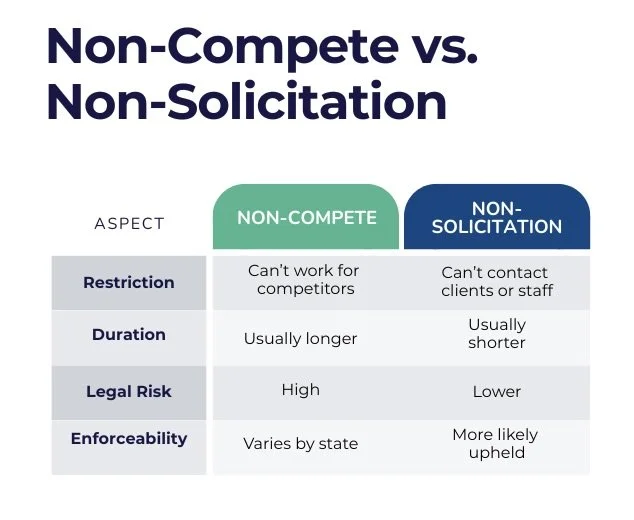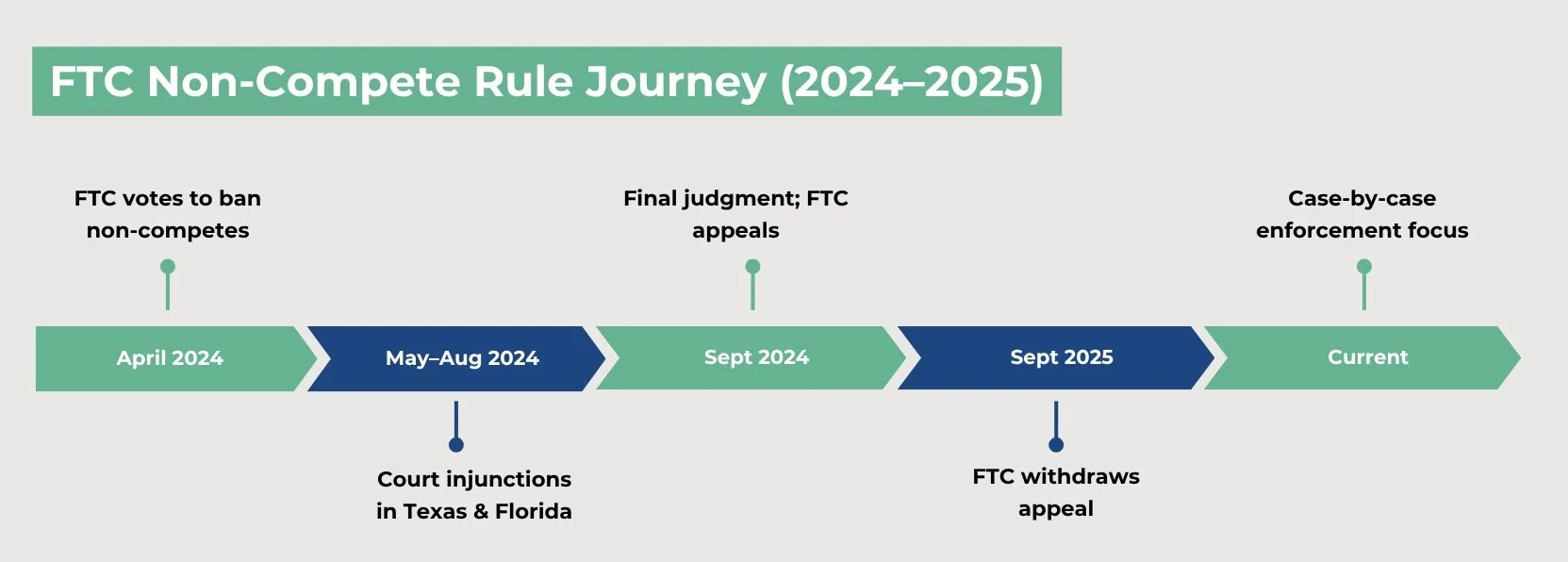Current Status of FTC’s Non-Compete Guidance
What are non-compete agreements?
In practice, some employers use non-competes or non-solicitation agreements to protect their business interests. When an employee is hired, their initial employment agreement may contain a provision that survives the terms of their employment prohibiting the employee from working in a similar industry for a certain period of time in a certain geographic area. Generally, for states that permit non-competes, whether a court will uphold them depends on whether the restrictions are reasonable in time and geographic scope. For example, a provision preventing an employee from working in a similar industry nationwide for 10 years following their departure from their prior company would not be upheld, but a provision preventing a former employee from working for a direct competitor within a 50 mile radius for 1 year following their departure could be upheld depending on the state law and overall circumstances (including factors such as whether the employee was a high-level executive). Some companies also use non-solicitation provisions in employment agreements to prevent former employees from soliciting either customers or other employees following their departure.
The FTC’s effort to free workers from restrictive non-compete clauses.
FTC’s Ban and Challenges
In April 2024, the Federal Trade Commission (FTC) voted to implement a nationwide rule prohibiting most non-compete agreements, with some narrow exceptions. Prior to the FTC’s ban, non-competes were governed by state regulations and case law. The FTC’s rule was quickly challenged, and enjoined by federal judges in Dallas and Florida. See Ryan, LLC v. FTC, 746 F. Supp. 3d 369, 390 (N.D. Tex. 2024); Props. of the Villages, Inc. v. FTC, No. 5:24-cv-316, 2024 WL 3870380, at *10–11 (M.D. Fla. Aug. 15, 2024). A final judgment was entered in the Texas case on September 4, 2024, and the FTC followed with an appeal to the Fifth Circuit Court of Appeals (Ryan, LLC v. FTC, No. 24-10951).
In September 2025, the FTC voted 3-1 to withdraw its notice of appeal, and indicated that it would focus on using its authority to challenge non-competes on a case-by-case basis rather than pursuing the nationwide ban. On September 8, 2025, the Fifth Circuit officially dismissed the FTC’s appeal.
After the FTC withdrew its appeal, non-compete rules are once again shaped by state law.
Current status of non-competes
Now, the nationwide state of non-competes is again governed by varying state regulations and case law. The FTC has indicated that the use of non-competes in certain industries may be subject to additional scrutiny, such as healthcare companies that seek to enforce non-competes against former employees.
Some states, such as California and Minnesota, prohibit non-competes outright. Other states, such as Virginia and Maryland, prohibit non-competes for employees below a certain income threshold.
Employers seeking to include a non-compete in an employment agreement, or to enforce a non-compete provision against a former employee, should consult legal counsel to ensure that the proposed restriction is reasonable and likely to be upheld if challenged in court. It is a best practice for employers to consider and document whether less restrictive tools, such as non-solicitation provisions, would be sufficient to protect the company’s interests rather than relying on a non-compete clause.


